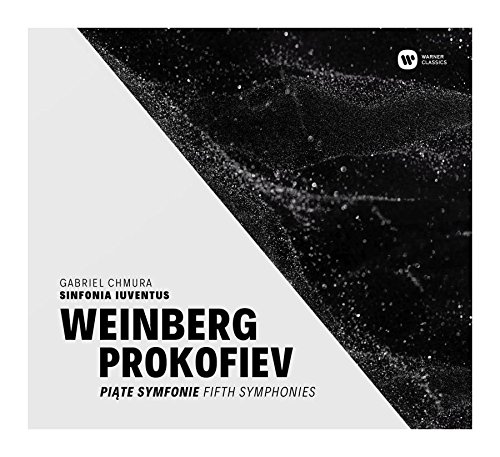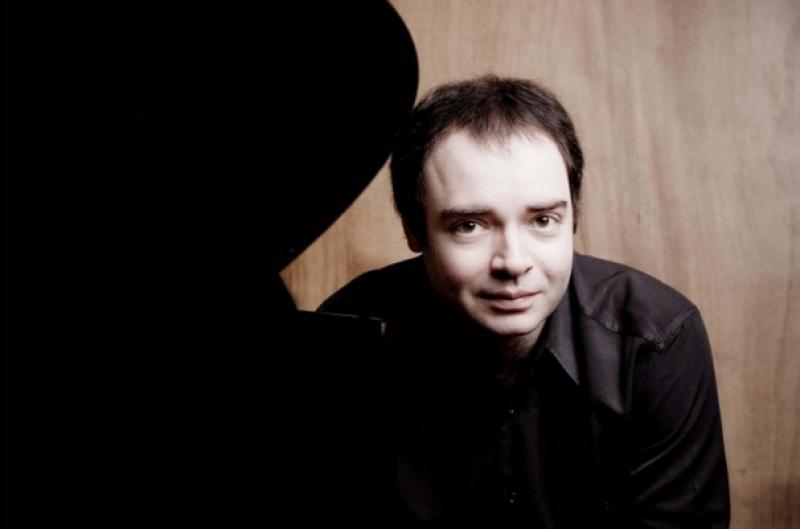Thanks to the ongoing efforts of conductor Mirga Gražinytė-Tyla,
the City of Birmingham Symphony Orchestra are continuing their exploration of
Weinberg’s music. It was a pleasure for me to stay in the city, as it is my ‘home
turf’ from childhood (well, I’m from between Dudley and Wolverhampton,
but the CBSO was the nearest orchestra in my formative years). Ahead of next
year’s centenary, they hosted a series of concerts and talks last weekend,
featuring sterling performances from all concerned. Here’s my brief review of the concerts:
Friday 23 November:
Gidon Kremer plays Weinberg’s 24 Preludes for Solo Cello (arr. Kremer)
Kremer has an outstanding reputation, closely associated
with composers like Schnittke, Silvestrov, and Gubaidulina. He has been
promoting Weinberg’s music for several years now, with several excellent
recordings on the ECM label. Kremer himself has arranged Weinberg’s 24 Preludes for solo violin, resulting
in an extremely demanding work. The Preludes themselves are tightly structured,
ascending chromatically through the keys. Kremer maintains this structure,
though this makes the act of arrangement more difficult (the easy route might
have been to transpose the key to suit the violin better; as it stood, Kremer
merely changes octave, preserving Weinberg’s original design). Kremer’s
performance was accompanied by a slideshow of photos by Lithuanian photographer
Antanas Sutkus, which alternate between humour and tragedy of Soviet life, with
a significant focus on childhood. Kremer’s performance was virtuosic and often
moving, and the combination with images was convincing (though I was left
wondering whether it was absolutely necessary – the Preludes could arguably ‘stand’
on their own).
Saturday 24 November:
11am: Gidon Kremer and Kremerata Baltica: Bach, Weinberg,
Schubert, and Silvestrov
The Saturday morning concert was given by Kremerata Baltica,
a youthful ensemble led by Kremer, though he describes it ‘a musical democracy’.
They continue to be one of the most innovative and exciting ensembles
performing today: you can expect surprise at every concert. They began with Bach’s
Chaconne in D minor for violin,
arranged for string orchestra by Kremer (itself an arrangement of Ferruccio
Busoni’s famous piano transcription of the piece). The opening was immediately
surprising: the orchestra took their seats, but a recorded solo violin began
with those infamous double-stopped chords. The orchestra continued, but the
ghostly recording interjected at key moments throughout. The connection with
Weinberg is apparent, as the Chaconne figures
at the dramatic climax of his opera The
Passenger. They then moved into Weinberg’s Concertino for Violin and String Orchestra, with Kremer giving a
fine performance as soloist, though their ECM recorded version offers far
greater warmth (perhaps a reflection of Birmingham Town Hall’s dry acoustic).
The concert then concluded with an intriguing arrangement: combining Schubert
with Silvestrov. That is, alternating, movement-by-movement, between the
movements of two pieces by two very different composers. It helped that the
Schubert was for the full ensemble of Kremerata Baltica, and the Silvestrov was
for violin and piano (his Five Pieces for
Violin and Piano, dedicated to Kremer), so a clear contrast was provided,
in addition to the massive contrast in character between the two pieces. The
effect was mixed, though the Silvestrov arguably came out the better in my
opinion, helped by Georgijs Osokins sensitive piano accompaniment. Overall,
this provided a more contemplative start to the day.
Saturday 24 November:
7pm: CBSO with Kremerata Baltica, Gidon Kremer, Maria
Makeeva, cond. Mirga Gražinytė-Tyla: Weinberg and Shostakovich
By far the most substantial event of the weekend was a
colossal orchestral concert, with the CBSO and Kremerata Baltica joining
forces. The programme was immediately striking, as the CBSO paired Weinberg’s
Symphony No. 21 with Shostakovich’s Symphony No. 15, two symphonies that
present extremely bleak and sombre themes. Weinberg’s 21st,
subtitled ‘Kaddish’, is dedicated to the victims of the Warsaw Ghetto, and
various quotations support this, from use of Mahler’s Des Knaben Wunderhorn, through to a reworking of Weinberg’s Fourth
String Quartet of 45 years earlier, and haunting solo piano quotes from
Chopin’s First Ballade that permeate a brooding canvas of mourning. The Chopin
reference and clear Klezmer sections strengthen the depiction of pre-war
Warsaw, and the piece’s dedication to the victims of the Ghetto. Various other
quotes from Weinberg’s oeuvre surface, and can surely be read as reflective of
his life’s work, especially as it is explicitly a memorial piece. One of the
key moments comes in the final section, as a wordless boy soprano intones a
mournful sighing motif, answered by a wordless soprano (Maria Makeeva) (itself suggestive of
loss between mother and child). The work was certainly positively received by
the audience, with a huge number of ovations and curtain calls. The work was
recorded for the option of future release, so watch this space.
Usually, it
would be alarming to think that Shostakovich’s Fifteenth Symphony could be the ‘light
relief’ of any concert, but it proved to be such here. The opening movement,
described as a ‘Toyshop’ by the composer, was performed with remarkable aplomb
the by the gathered forces of the CBSO and Kremerata Baltica, while the quotations from Rossini'sWilliam Tell were handled with a subtlety that is unusual in most performances. The
following movements switch to a far bleaker outlook, with star turns for solo
cello and trombone in between Mahler-esque funeral dirges by the brass. The
Scherzo was taken at something of a ‘safe’ tempo, though its sarcastic
character was still easily conveyed. The finale of the Shostakovich is perhaps
the most baffling movement of all, with Wagner and Glinka quotes contained
within, presenting a culmination of his recognisably ‘Shostakovichian’ mode of
despondency through major-key (or ‘happy’) music.
The concert
itself was a triumph, and Gražinytė-Tyla was captivating as leader of the
orchestra. Every cue was flawless in execution, and the orchestra (and
audience) are clearly held in awe with every movement.
The Weinberg weekend itself was a great success, and I look
forward to future CBSO concerts with his music (next is 31 March 2019, with
Kremer in Weinberg’s Violin Concerto, and the Fourth Suite from the Ballet The Golden Key - further info here). Long may Gražinytė-Tyla’s
leadership of the CBSO continue, as well as their engagement with Weinberg’s
music.
D.E.









